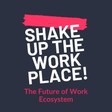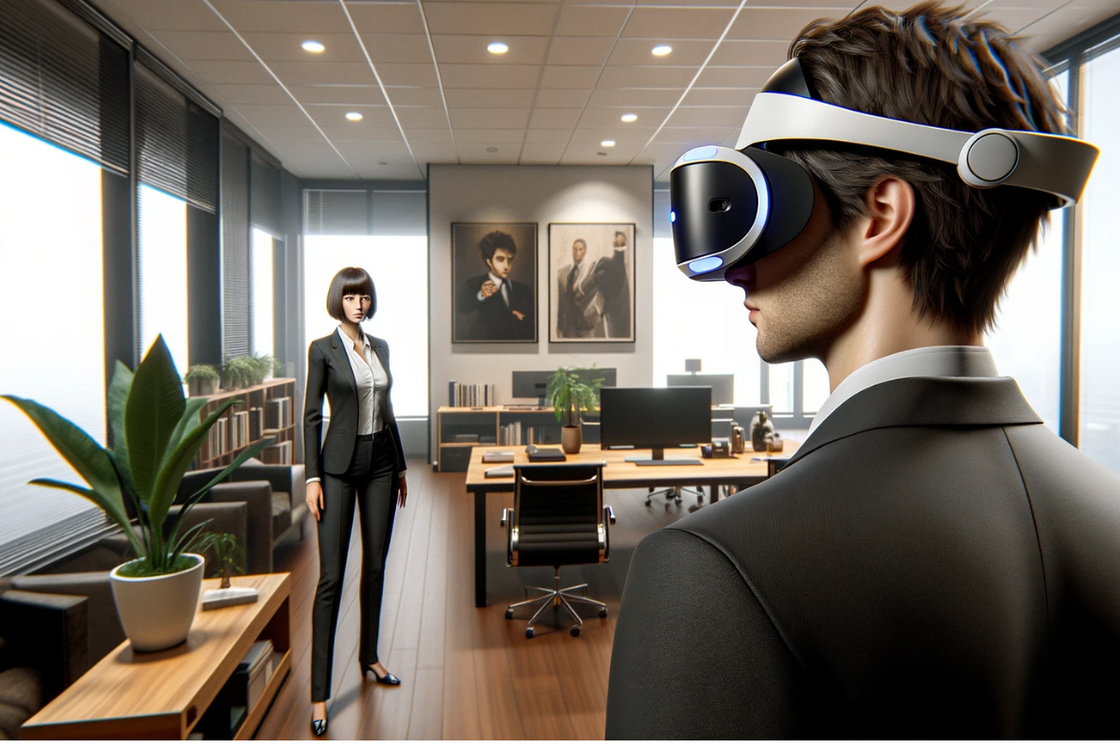Virtual Reality Learning & Development
Discover the power of VR and AI for effective and scalable soft skill training.
Continuous learning and upskilling are imperative for leaders and organizations. Apart from technical 'hard' skills, soft skills play a pivotal role in the resilience of companies. However, such development programs have to be efficient and effective to ensure a sustainable transfer into the day-to-day life of a leader to improve their leadership qualities.
Traditional programs often do not meet these criteria:
- Classroom learning is effective but costly and not flexible enough to meet leaders’ busy schedules. Moreover, the programs often are not tailored to a leader’s specific needs or an organization’s leadership challenges and culture.
- E-learning is more efficient than classroom learning but less effective regarding the transfer into day-to-day situations through the lack of immersion classroom learning can offer.
- Plus, adapting leadership development programs to new leadership challenges or different leadership roles is often very timely and costly.
We have particularly good news for organizations that want to upgrade the skills of their leaders and employees in a more effective and efficient way than classroom training or e-learning: Virtual Reality!
Benefits of Virtual Reality Learning
Skill training in Virtual Reality (VR) – one dimension of the wider context of immersive learning - has several upsides as studies confirm, e.g., pwc's 2020 report on VR soft skills training:
- It offers a safe environment for practicing skills as well as for experimenting with different ways of solving issues.
- VR Learning is much more immersive than traditional e-learning because it allows learners to practice skills as if they were in real-life scenarios. The emotional engagement with the content makes the lessons more memorable.
- The independence of time and place is another plus compared to the alternative of classroom learning. This suits very well the tightly scheduled agendas of many leaders.
- In addition, VR learning at scale is clearly more cost-effective compared to e-learning or classroom learning.
- Lastly, VR training can be highly engaging and motivating, often more so than traditional learning methods.
Studies show that VR learners are
- faster than in classroom
- 4x
- more confident to apply skills learned
- 35-40%
- more emotionally connected
- 2.3x-3.75x
- more focussed than e-learners
- 4x
Hear from people who have tried it with us

Our immersive learning pilot on feedback was a game-changer. The engaging, hands-on approach made the learning process impactful and directly applicable to our people's work. Dimenteers' seamless execution of the Proof of Value ensured a smooth, no-frills experience. I highly recommend their services.


I must say, this experience truly stands out. The most striking scenario involved a virtual team member anxious about organizational changes, fearing potential redundancy. These conversations are always challenging, but experiencing such a realistic practice can be a game-changer, especially for a manager facing this for the first time. It was incredibly lifelike, transcending traditional learning methods. This felt like real-world practice, a vital asset for L&D. The experience has really opened my eyes to how immersive learning can transform our approach, making training more practical, engaging, and relevant to today's work challenges.


The virtual reality demo was a learning experience to the heart of communication! It transcended the barriers of a traditional training environment, allowing us to confront difficult conversations with a newly discovered confidence that can only be described as transformative. This VR experience wasn't just about practicing our responses; it was a reflection about reshaping our approach to leadership and empathy in every interaction we encounter.


Contact us for a free 30-minute free exploration call.
A sneak peak into immersive soft skill training
Which skills can be "learned" and "practiced"?
There is a wide range of possible soft skills to train in VR:
- Crisis communication
- Difficult conversations
- Feedback & empathy
- Performance review
- Influencing stakeholders
- Diversity and inclusion training
- Public speaking & media training
But also hard skills can be trained:
- Medical procedures
- Vehicle/plant operations
- Construction planning and operations
- Safety procedures
- Logistic processes
- Remote maintenance
How will VR learning develop further?
Since these studies referenced above, VR technology has massively progressed – not only in terms of graphics and resolution but also in terms of offering learning scenarios with highly advanced, realistic avatars that significantly narrow the gap between digital and real-world human presence. Thereby, avatars are created to act and respond in line with an organization’s purpose, values and (leadership) culture. And in combination with Generative AI, avatars will be trained to display a variety of behavior patterns similar to real-life humans. Finally, voice interaction with avatars will make the scenarios even more realistic.

